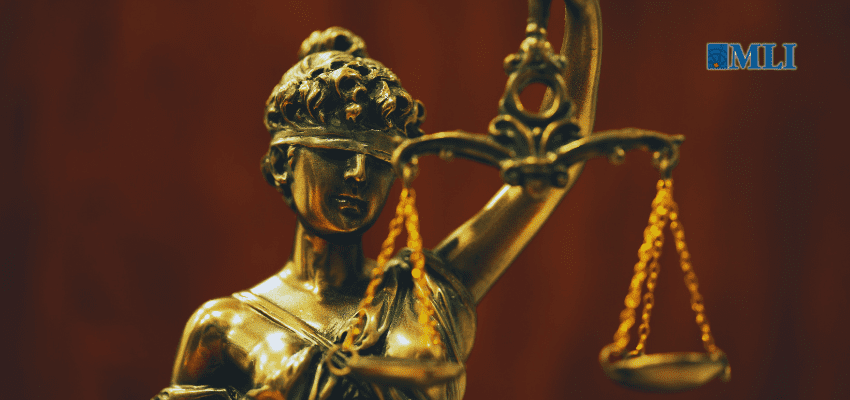This article originally appeared in the Hub.
By Mark Mancini, October 10, 2024
Should judges ignore past precedents—simply because they are old? What would happen to the rule of law if justices jettisoned statutes simply because they pre-date the Canadian Charter of Rights and Freedoms?
During an appearance to discuss the work of the Supreme Court, Chief Justice Richard Wagner made a remarkable admission. In French, Wagner asserted that old Supreme Court decisions—still the law, at least in some cases—are merely part of our “legal cultural heritage.” Chalking it up to the supremacy of the more recent Charter of Rights and Freedoms, Wagner asserted that “no one today [would] refer to a precedent from 1892 to support their case.” Apparently, our legal system completely transformed without anyone knowing it, rendering all of these “old”—read “bad”—cases null.
It is always risky to make too much of an isolated comment. But taking him at his word, Wagner may be right. Given the Court’s frequent changes of mind about its own cases, it’s understandable that litigants might believe they should only rely on the latest rulings.
If this is so, the bar should be alert. The Supreme Court was not birthed from thin air. It is an institution that decides cases, with parties in front of it, and is bound by rules in doing so. One of those rules is fundamental. Until overturned, implicitly altered through other judicial decisions, or otherwise changed by legislation, courts follow their own past cases—even old cases decided based on since-repealed laws. This is known as stare decisis.
Once upon a time, the Supreme Court took this seriously.
Indeed, in a 1935 case, Chief Justice Lyman Duff wrote that courts should be on guard against a “natural tendency… to take the latest case as a new starting point….” Straying too far from fundamental principle in view of the next new and cutting-edge legal concept means “transcending your function as a judge” while simultaneously constituting “yourself a legislator.” For Duff, when judges went far, criticism from the bar should be “a source of happiness.”
The Charter did many things—but it did not create a new legislature in the Supreme Court building. It granted a power of judicial review subject to the text of the Charter, and that text was enacted against a backdrop of existing parliamentary institutions. The Charter meaningfully changed the way these institutions operate, but this was a self-restricting choice. Politicians chose to limit themselves through the Charter, subjecting their actions to review in the courts. However, they agreed to subject their actions to the law, not the say-so of judges.
Judicial review does not necessarily lead to this latter consequence, though Canadians can be forgiven for thinking so. “Freedom Convoy” protestors affected by the federal government’s invocation of the Emergencies Act know this first-hand. When the Federal Court held that invocation unreasonable and unconstitutional, it did so not because of sympathy—or not—with Convoy protestors, but presumably because the legal standards in the case called for that result. Indeed, Justice Richard Mosley expressed sympathy for the predicament in which the government found itself, but he also emphasized that the law binding the government prevented it from acting as it did.
But one cannot justify this extraordinary power by simply appealing to the Charter itself, as a totem of Canadian values. The legitimacy of judicial review, and the extent to which it commands respect, depends on the court exercising it judiciously, according to legal standards, including stare decisis. “Legal heritage” is not just heritage—it is our law.
But when Chief Justice Wagner questions the inheritance for which he is a custodian, he gives the impression that every Supreme Court decision is a new day and a novel opportunity to pull away from the accumulated wisdom of the past.
Of course, the law is not frozen in amber. As society changes, it may appear that many old cases are historically interesting but not legally relevant. There is some truth in this. At the same time, many cases are still relevant because they lay down fundamental principles—derived from our system of government—that time has not changed.
This is not just interesting for historians to mull over. The foundation of our law stretches back centuries. The Five Knights Case, a landmark moment in the development of habeas corpus, was decided in 1627, but it is not just a quaint story of legal heritage. It provides age-old benchmarks against which we can ask whether our law of habeas corpus is up to snuff. Chief Justice Wagner himself has found the allure of old cases irresistible: he rejected an argument that the federal government’s greenhouse gas pricing scheme was an unconstitutional delegation of power, in part on the authority of a 1918 Supreme Court case, Gray.
In this way, judicial decision-making does not occur in a “Year Zero” sense, nor did the sun rise differently when the Charter was enacted. If judges are going to decide according to law, old cases will contain many truths that continue to have force in 2024. Judges ignore this at their peril: if they are seen to be acting as politicians, the public will treat them like politicians. Judgment according to law, enshrined in the Charter, should aspire to more.
Mark Mancini is a senior fellow at the Macdonald-Laurier Institute and an assistant professor at Thompson Rivers University, Faculty of Law. He holds a J.D. from the University of New Brunswick, Faculty of Law, and an LL.M. from the University of Chicago Law School.







